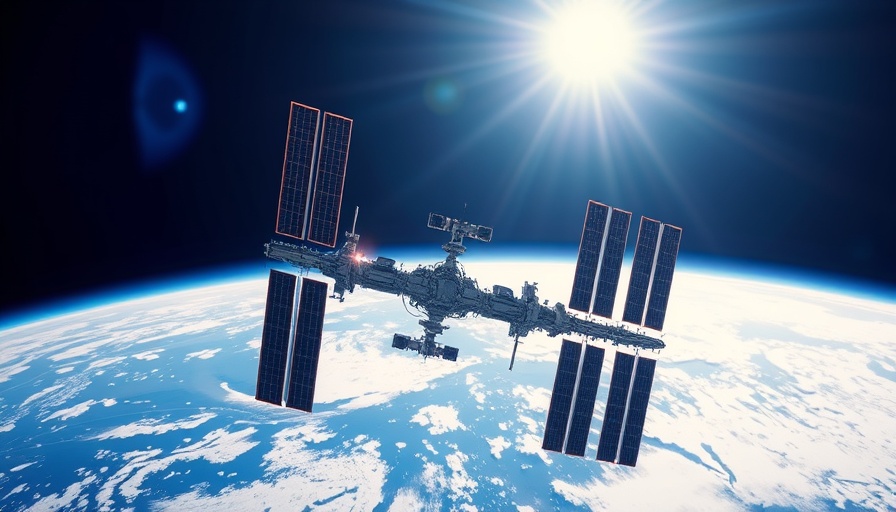
Navigating the Budget Cuts at NASA: A Closer Look at the ISS
Nasa, a beacon of human achievement in space exploration, is now facing tighter budget constraints, affecting operations on the International Space Station (ISS). This adjustment comes in response to the Trump administration's "skinny budget" proposal that outlined significant cuts across NASA’s programs, particularly targeting the operations and research conducted aboard the ISS. While budget cuts can often translate to swift, difficult decisions, understanding the rationale behind them offers a glimpse into the future of space exploration.
Understanding the Proposed Changes
The recent proposals include the reduction of the Crew Dragon missions' complement from four to three astronauts, extending mission durations from six months to eight, and cancelling upgrades to critical science instruments like the Alpha Magnetic Spectrometer. These changes aim to save approximately $508 million from NASA's ISS budget, which hovers around $3 billion per year. It's notable that these proposals were being considered before the official release of the fiscal year 2026 budget, indicating a proactive approach to reassess NASA's role on the ISS.
A Shifting Focus: Commercial Space Stations on the Horizon
Another major aspect of the proposed budget adjustments is the impending transition from the ISS to commercial space stations. The Trump administration's proposal reflects a broader governmental strategy to prepare for a future where NASA reduces its direct involvement in such missions and diverts resources towards developing technology and infrastructure for moon and Mars exploration. Supported by innovations in commercial space operations, this transition aims to broaden the landscape of space exploration while alleviating some financial burdens from federal budgets.
The Impact of Crew Size Reductions: What it Means for the Future of Research
Reducing the crew size on missions might seem like a minor adjustment; however, it could have significant implications for the ongoing research projects aboard the ISS. Fewer crew members mean a reduction in the number of experiments that can be effectively managed simultaneously. With a reduced onboard research capacity, the focus will pivot towards efforts that line up with future exploration endeavors targeting the Moon and Mars. This shift opens up discussions on whether the trade-off of current scientific research is worth the future benefits of these grand goals.
International Collaboration in Space: A Parallel With Russia's Approach
Interestingly, Russia has already begun implementing similar changes to its Soyuz missions, extending their crewed missions to eight months. This alignment of strategies between NASA and Roscosmos highlights the increasingly interconnected nature of international space operations and emphasizes a shared shift towards more cost-effective and efficient space missions. This collaboration can foster stronger partnerships in the pursuit of shared goals in space exploration.
Looking Ahead: The Future of Space Exploration Amidst Budget Cuts
While budget cuts pose immediate challenges for NASA, they also signify a chance for a recalibration towards innovative, long-term strategies in space exploration. With moving away from the ISS into a commercial space era, NASA has an opportunity to engage a broader spectrum of technological advancements and partnerships.
However, it is essential to recognize that while this emphasis on future endeavors is critical, it should not come at the expense of current scientific knowledge. Striking a balance between sustaining research aboard the ISS and preparing for upcoming missions will be vital for maintaining the momentum of previous achievements.
Conclusion: Join the Discussion on the Future of Space
The changes proposed by NASA invite us to contemplate the evolving nature of space exploration amidst financial limitations. As the space agency pivots from the ISS towards a future with commercial space platforms and interplanetary ventures, it's crucial that both the public and professionals in related fields stay informed and participate in dialogue about these developments. The pursuit of knowledge in outer space impacts numerous scientific fields and technologies that can benefit humanity as a whole.
If you find the current developments in space exploration exciting, consider following news updates from NASA as they continue to navigate these challenging times. Scientific innovation thrives when there’s public interest and support.
 Add Row
Add Row  Add
Add 




Write A Comment